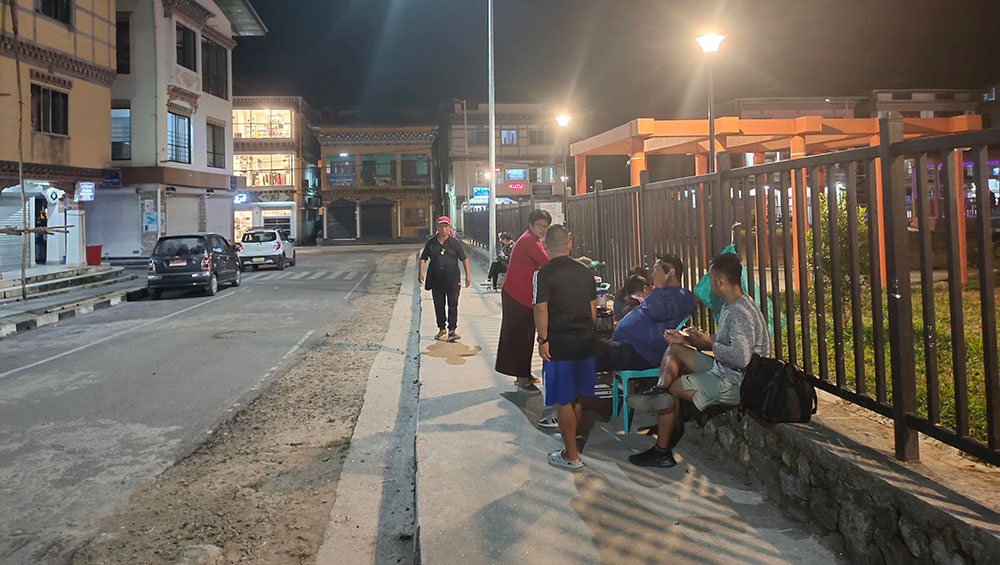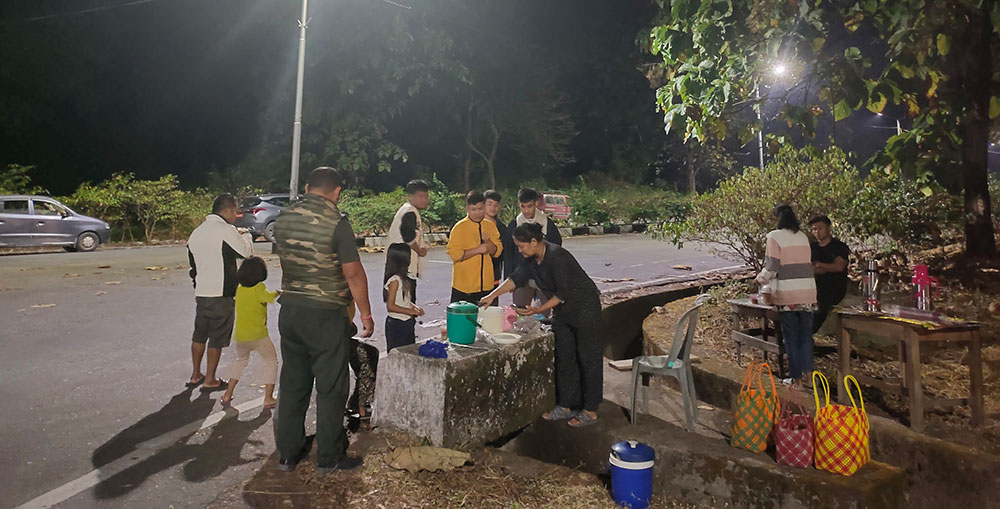…economic struggles have increased drastically over the years
Lhakpa Quendren
Gelephu: Amid economic challenges in Gelephu, restaurant owners turn to street hawking for survival. Declining customers prompt this shift, highlighting a growing trend with potential solutions and community collaboration.
Even with a few customers, usually around 20 to 40, they manage to earn between Nu 1,900 and Nu 3,100 every night. This income helps cover their monthly house rent.
Ugyen Lhamo, 50, from Umling in Sarpang, said that spending a few hours on the street is more rewarding than a whole day at the restaurant. “I hardly earn Nu 150 a day from the restaurant.”
Worried about her monthly loan payment of Nu 10,500 and a house rent of Nu 10,000, Ugyen Lhamo resorted to street hawking, starting with just 10 plates of momo (dumplings). She said that a customs official suggested a busy spot at the four-arm roundabout along the Gelephu-Trongsa highway.

Restaurateurs find street hawking more profitable
The mother of four ventured into the restaurant business in the Samdrupling constituency some years ago to support her family. However, her dream was shattered after the initial years of a successful business.
“With no other options, I had to leave for work in a restaurant in Phuentsholing from August to November,” she said. “The money I earned there has helped me to pay the monthly rent here, while my children managed our restaurant.”
Her eldest daughter, who completed Class 12 last year, recently secured a job in a bakery in Gelephu town. Her other children are attending school and help her manage the restaurant while she is out street hawking.
Ugyen Lhamo inquires with each customer about the taste of her items, encouraging them to return. “Before heading out for my daily business, I say a few prayers, hoping for smooth sales without any obstacles,” she said.
Street hawking has emerged as a potential solution for these businesses to reach a broader customer base and attract both residents and passersby. Nearby shopkeepers, operating until late into the night, also visit the street hawkers for porridge. They sell various popular homemade items, including momo, porridge, bathub, juma, panipuri or puchka, tea, and hoentay.
Kezang Choden, 45, from Samar in Haa, started street hawking in the core town a week ago after her restaurant near Tali monastery experienced a decline in visitors. The mother of four sons and two daughters moved to Gelephu a year ago with her husband, who worked as a petty contractor and is currently unemployed.
“In the past, failing exams meant staying home, but today we have to support our children to complete their education,” Kezang Choden said.
For Karma Tenzin, 28, from Samdrupjongkhar, street hawking is his full-time job, providing support for his three family members. He entered this business after the closure of a construction project in Pelrithang, where he was previously employed.
“I start as early as 6pm and continue until 4am or 5am. On weekdays, only 30 to 40 customers visit, while about 50 customers come on Saturday night, which helps to bring the nightly income to about Nu 12,000,” he said.
The business, however, is not without challenges. With more restaurateurs turning to street hawking, they expect that if local authorities provide safe zones, it would create a conducive environment for their ventures.
Gelephu, once a thriving town, now faces a steep economic downturn. Residents say that the long-term impact of this economic shift will depend on collaborative efforts for sustainable growth and prosperity.


